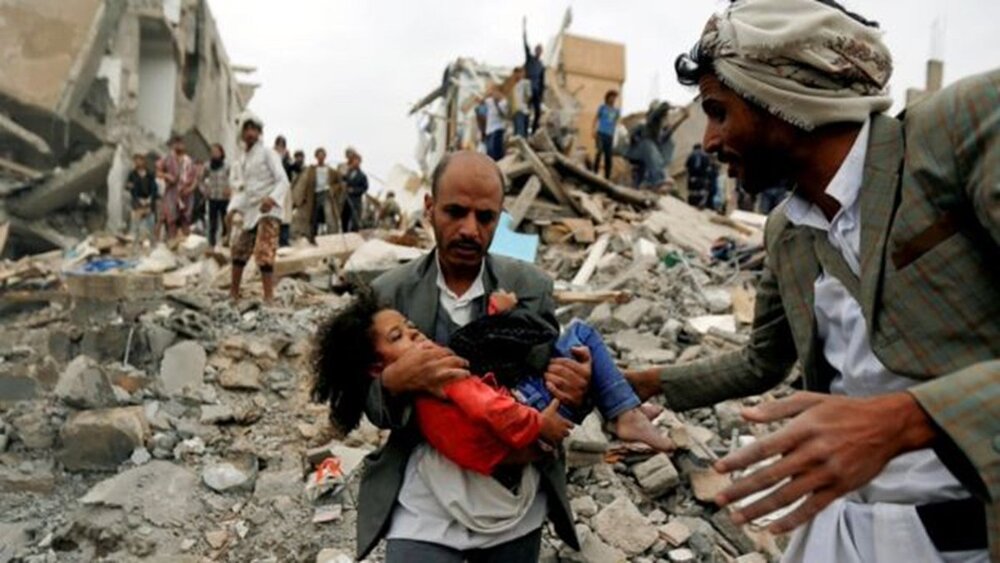End of war in Yemen is the only solution for all, Zarif says

TEHRAN – Iranian Foreign Minister Mohammad Javad Zarif suggested on Tuesday that ending the war in Yemen is the only solution for all, criticizing the United States for denying the fact that Yemenis would strike back against “worst war crimes” committed by Saudi Arabia with a Washington’s support.
“US is in denial if it thinks that Yemeni victims of 4.5 yrs of the worst war crimes wouldn’t do all to strike back.
Perhaps it’s embarrassed that $100s of blns of its arms didn’t intercept Yemeni fire.
But blaming Iran won’t change that.
Ending the war=only solution for all,” he tweeted.
In another tweet, Zarif said, “Just imagine: The U.S. isn’t upset when its allies mercilessly BOMB babies in Yemen for over 4 years—with its arms and its military assistance.
But it is terribly upset when the victims react the only way they can—against the aggressor’s OIL refineries.”
Washington has blamed Iran for the Yemeni drone attacks the Saudi on oil installations on Saturday.
U.S. Vice President Mike Pence reiterated the tone set by President Donald Trump and said that “it’s certainly looking like Iran was behind these attacks,” according to Press TV.
“As the president said, we don’t want war with anybody but the United States is prepared,” Pence said.
Zarif said on Sunday that the United States’ failed policy of maximum pressure on Iran has turned into “maximum deceit”.
“Having failed at ‘maximum pressure’, Secretary Pompeo is turning to ‘maximum deceit’,” Zarif tweeted.
Zarif said blaming Iran for the dangers ensuing the Saudi-led war on Yemen “won’t end the disaster”.
Iran’s four-point plan put forward in April 2015 is the remedy for the current situation, Zarif insisted.
“Blaming Iran won’t end disaster. Accepting our April 15 proposal to end war and begin talks may,” Zarif pointed out.
In April 2015, Zarif submitted a letter to Ban Ki-moon, then UN secretary general, outlining Iran’s four-point peace plan for Yemen.
The plan calls for an immediate ceasefire and end of all foreign military attacks, humanitarian assistance, a resumption of broad national dialogue and establishment of an inclusive national unity government.
Iran’s chief diplomat went on to say that the United States and its “clients” in the region are caught in the Yemen quagmire because they suffered from the illusion that possession of sophisticated arms would lead to victory.
“The U.S. and its clients are stuck in Yemen because of illusion that weapon superiority will lead to military victory,” Zarif stated.
Iranian Foreign Ministry spokesman Abbas Mousavi also responded to Washington’s claims, saying, “Such accusations and unfruitful remarks are meaningless within diplomatic framework.”
Mousavi said, “Even in the international relations, hostility has some logical framework which has been trespassed by the U.S. officials.”
Saudi Arabia launched military campaign against Yemen in March 2015 with the aim of eliminating the Yemeni opposition groups who had toppled the government of President Mansour Hadi.
Failing to achieve either of its goals, Riyadh has not stopped bombing Yemeni targets, creating a protracted conflict which has so far led to the killings of over 16,000 Yemeni civilians, starvation of 14 million people, and the destruction of the country’s infrastructure.
NA/PA
